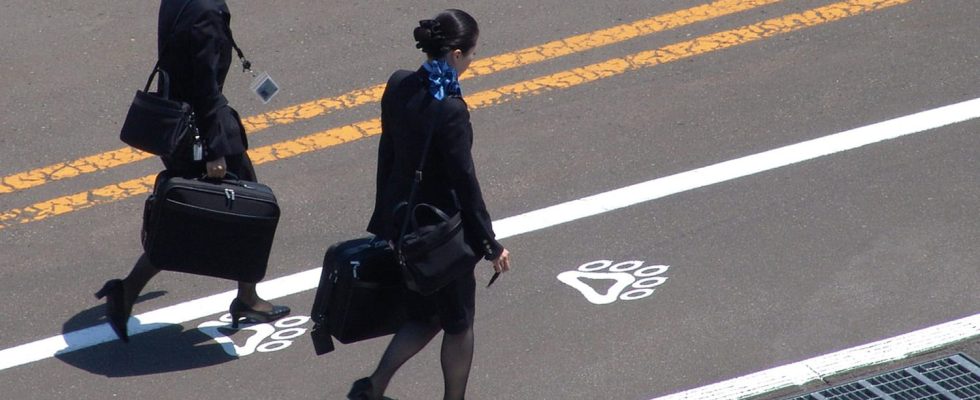If you think cabin crew aren’t paying attention to arriving passengers, think again. There are distinctive features that flight attendants and stewardesses notice when passengers walk through the aircraft’s front door. Find out which ones.
Generally they are friendly, greet us with a smile, a greeting and help us find our seat. This is the first impression we have of a steward or stewardess when we enter the plane. But be aware that these professionals are very attentive to various important signs in passengers. The Quora site posed the following question: “what do flight attendants notice in passengers when they board the plane?”. Here are some answers:
Fear and anxiety: It is well known that the fear of flying is a phobia that affects many people. When anxiety shines through, flight attendants tend to stare at the most desperate faces, “to offer a word of comfort and courage,” said Janice Bridger, a flight attendant of 27 years.
Illegal transport: There are always people who try to circumvent safety rules and recommendations. “I’ve caught people trying to bring pets in their hand luggage or carrying bottles of alcohol to drink on the plane (it’s possible to enter with closed bottles, purchased at the airport, but you can’t consume them on the plane),” explained Janice Bridger.
Signs of serious illness: Passengers showing signs of infectious, contagious diseases or in serious condition may also be refused access to the aircraft. “We are in an enclosed space, so if a person is sick, it is not fair that they can contaminate others,” replied flight attendant Amar Rama, adding that it is better that the most serious health problems occur on the ground. “I once saw a woman suffer a heart attack at the gate. I was grateful that it happened on the ground and not during the flight. Flight attendants and stewardesses are trained in the first rescue, but cannot make diagnoses and have no medical training,” the stewardess said.
Drunk Alert: According to Sjaak Schulteis, a flight attendant for 30 years, passengers who are intoxicated can be refused access to the plane. “If a passenger boards drunk or under the influence of drugs, they may be prohibited from flying. The first impression is almost always the right one and we can refuse passengers who could endanger the safety of the flight. Until “I have now turned away four passengers, with the support of other flight colleagues. All of them were drunk,” the stewardess replied.
Muscles matter: Strong, muscular and healthy people can be more easily spotted by flight attendants and stewardesses. “I see this person as a resource. In the event of an attack during the flight, they are people I can turn to. If a tense situation develops, I discreetly approach one of these passengers and asks if he would be prepared to help us, if necessary. He can be of great help in subduing an angry passenger. We hope this never happens, but we are prepared for these scenarios”, explained Janice Bridger, stewardess for 27 years.
Coworkers : Another type of passenger that attracts attention is those who have already worked or are working in the aviation sector. “They have been trained to act in case of emergency, medical, mechanical, etc. They know how to handle situations, just like me, and are ready to “join the team”, if necessary. They are an invaluable resource for me and that’s why I like to know where they’re sitting,” Janice Bridger said.
Special needs: Passengers with special needs deserve special attention from the cabin crew. Whether it’s for extra assistance during the flight, to get a more comfortable seat, but also in an emergency. “If something happens, I want to make sure that no one is left behind”, commented Amar Rama. “I must remain vigilant and attentive, all this behind my expression of sympathy and welcome”, concluded this hostess air.
